|
Anonymous asked:
I’m stuck. I just opened my project & realized I haven’t written since the 17th. I haven’t even been thinking about it, my brain is just really off the story. I’m stuck at work with nothing to do, & instead of writing I’m sending you this ask. I just... don’t want to but I know I should just force myself. Should I reread everything of what I wrote to try to get excited again? Should I just keep on taking this break until my brain thinks about it? These days it feels like I’ve forgot I’m writing. +++ I am in a similar bind with an e-course I’m writing on... ironically writer’s block. Oh the universe laughs.... So. Let’s look at your problem and maybe I can solve mine. First off, understand that this is the holiday season and things are weirder this holiday season than normal, due to covid and *waves hands* everything. This is NOT a good time to get stuff done, especially, frankly, in writing/publishing. Publishing closes down at this time of year. EVERYONE is...frantic with it all. End of the year, holidays, travel plans (please don’t travel it’s quarantine time,) family, holiday blues, work expectations etc. Now this doesn’t mean you can’t write, but I think it’s beneficial to not give yourself a hard time about not doing your writing and remember that there are extra obstacles to getting focused. Your brain is BUSY. With stuff or work or anxiety or holiday blues or whatever. Okay. So what that means is you have let go of the guilt and the “shoulds” of it. The guilt and shame and failure and anxiety of not writing when you think you SHOULD be writing can be debilitating. You feel guilty so you avoid writing then you feel ashamed for avoiding it then you feel like a failure for not being able to write because what writer can’t write when they have the opportunity? then you fill up with anxiety because you suck and fail and blah blah blah. Writer anxiety/block spiral. It’s quite likely that your brain is off the story because your brain is busy with all the other stuff. This is not something to be ashamed of, it’s just life. Life has cycles of productivity and rest. It just does. That’s how things work. You work. You take breaks. You are active. You are resting. You write. Then you don’t write. Let yourself have your cycle. Okay. That said, if you want to take a break and just not worry about it. Go ahead and do that. Maybe set a plan to start writing again at a time when you have the freedom to focus. Make a date with yourself and your project. Why not? Take that dead day at work and plan out what you want to do next and where and when. Actually, considering that, if you actually take your lull at work and PLAN your writing for next time, you might very well find yourself back in the project. One of the things I do when I want to write but am not in that place to write is go to the pinterest board I made for my project (I like keeping those, they help me visualize and plan the story.) If I spend some time perusing the boards, I remember the story. I remember the feelings. The things that get me excited. The characters. Or, I search pinterest for things essential to the story and pin them. That’s a way to get your brain back in the story without actually producing new words. It helps with the lack of focus while not being demanding of a unfocused mind. I think it’s another part of the brain being used, not the verbal one or the logical one, but visual and subconscious. This image “feels” like the story. That image sets up a resonance with a theme. If pinterest is not your thing, you could try organizing your thoughts instead of writing them. Draw a map of your setting. Or a floor plan. Look for costumes that would fit. Make a menu. Or a playlist. Create a family tree. Outline a little backstory. Or outline the story you’ve written so far if you’re a pantser rather than a plotter. Do a tarot spread for your characters or story or figure out their Hogwarts House or astrology sign. Or their favorite food or childhood pet. The idea here is to think AROUND your story rather than addressing your story directly. If one part of your brain doesn’t want to work on it right now, use another part that you find inspiring. I’m a visual person that’s why pinterest works for me. But music might do it for you. Or (if you’re not stuck at work) maybe you like to MOVE to get your brain going and going for a run does it. Another thing I like is to take a narrative break. For me, instead of trying to write write write, I need my brain to start thinking of stories again. Not writing the next word. So I step back, pick up a nice, easy, not too demanding book, and just read. It’s a break for me but it keeps my brain in narrative mode. Often, in the middle of my reading break (20 minutes is a good time) my brain starts connecting back to MY story and I jump up because I’ve figured out how to write again. Sometimes I need the break more and I keep reading for another 20minutes or more. It’s not uncommon that I just keep reading for an hour, but that’s okay too. Now, your suggestion of reading the project over to get back into the story which you’ve forgotten and have gotten out of is an EXCELLENT way to get back in. I do that on a regular basis, especially when I’m binge writing 3k word a day or so. I sit down at the computer and go over what I wrote the day before, so that no matter what I’ve been doing since (working or scrolling or errands or reading or whatever,) I’ll remember where I was and what state of mind I was in. It also gives me a chance to edit what I did the day before, tighten it a little, emphasize anything I want to put in there and THEN I just keep going onto the next scene/passage/chapter when I get to the end of what I already wrote. So, my advice to you is to... figure out what works for you. If you need the break, keep taking the break, no guilt. If you want to get back to writing, do the read through and then get back to writing. If you want something in the middle where your lack of focus and distance from the story might be given a little respect--but not coddled, try NOT writing but still doing something story related like I suggested above, and you may find yourself writing again, or maybe just doing something fun that helps you get back into the story for when you ARE ready to write again.
0 Comments
Anonymous asked:
Is it ok to not write everyday? Saturday I had family over (situation isn’t critical here), Sunday I was feeling sick and with a lot of headaches, Monday I had too much work and when I got home I just didn’t feel like writing. Yesterday I actually wrote, more than 3000 words. But today I left work later and went shopping. Had dinner while watching a tv show, took a shower. 10pm, didn’t feel like writing as my back really hurt & I was tired. I felt guilty for not writing as I had time. Is it ok? PS. I’m really enjoying writing this story and I haven’t felt like it was this easy to write for a long time. I’ve been struggling to write, so now that I’m doing it and having fun and doing it daily, most of the time, I don’t want to burnout nor force myself to write when I don’t feel like it. I think that if I don’t particularly want to and force myself, I’ll stop enjoying writing it eventually +++ Yes it’s okay not to write everyday-- or not write as much everyday. As a writer, if you don’t have a deadline or assignment, whether for school or work or publication, then writing is 100% voluntary. You might feel a compulsion to write, but it’s still a choice. And I believe that if people are looking to have a writing career, then they should actively CHOOSE to write. And to be aware how hard it is, how tricky, how little the rewards often are, and decide for themselves whether or not they are willing to sacrifice what they must in order to write. Because make no doubt about it, writing is something you have to sacrifice for. Even if it’s just your time and energy, that’s a sacrifice. And if you feel that you don’t want to sacrifice your time and energy to write, then maybe writing is not what you want to do as more than a fun pastime whenever the mood hits you. You can write without having a career in it, you know? You can enjoy it privately, or in fan fiction, or just for fun, with no grander goals than this one story, or whatever story you’re in the mood for. I mean I’ve been writing poetry for decades, and it never stopped me that I didn’t write regularly or publish much beyond that one year when I did a chapbook. I still find value in writing poetry, no matter what comes of it. AND if you DO choose writing as a career or calling (because sometimes it’s more a calling than a career-- it’s hard to make a living, even when you succeed,) then you have to be aware that you’re in it for the long run. That means that you do not want to binge write every day, forever for the rest of your life. It is not sustainable. Please remember that you are not only a writer, but also a person. You’re going to need time to be a person. To be with family. To work. To enjoy yourself. To be social. To get exercise. To be sick sometimes, or maybe all of the time if, like me, you have a chronic illness. As a writer, you need to take your life into consideration when you plan to write. Build writing into your life, don’t make it your life. Because in order to write well you do actually need to live. Whatever that means to you. Every writer has different needs. Some writers MUST write every day, to one degree or another. I think I might be one of them. But that doesn’t mean I write in my novel every day. There’s novelling, there’s journal writing, there’s poetry, there’s blog writing, there’s letter writing, there’s fanfic writing, there’s essay writing, there’s also social media writing. I’ve seen some instagram posts get very elaborate and be more like journals or essays. Do beware of twitter writing though. While it feeds the writing jones, it doesn’t seem to be very focused. Although, idk. Maybe it works for you to keep the fires burning. But even when someone does prefer to write every day, sometimes there are going to be times when that’s not feasible, due to outside constraints or health or maybe a loss of inspiration or desire to write, even. It happens. I have a theory that writing is not JUST putting words on the page. A lot of the time, as writers, we really need a fallow period, where we DON’T put words on the page. Where we accept that there’s a silence in the words, a kind of wintering over, where we have to retreat from productive writing and instead focus inward on ideas, on feelings, on HOLDING onto those ideas and letting them grow underground, to bring them to bloom later, when it’s time to write. Sometimes that “writers block” isn’t a writer’s block, but just a signal from our subconscious that we need to take a break and maybe slow down the relentless progress of words so that the ideas can grow and deepen into something more substantial. As I’m ghostwriting now, at a VERY fast pace, I do believe that writingwritingwriting without stopping to think leads to a shallower story. They can be FUN stories, but if you don’t stop to think about how it all fits together and maybe what it all means, then how can it really go deep? Sure you can push through to get that bingewriting wordcount... but does that mean you’re doing good writing? So basically I’m saying not only is it OKAY to take a writing break, I’m saying that in some ways it may be NECESSARY. Even when I do bingewrite, I find I need to take a break after it... so like for nanowrimo or ghostwriting, I need downtime to rest and recuperate. If I’m not writing slowly (for me 1k a day) where I’m building rest time INTO my writing day, I need to take a break, sometimes days, sometimes weeks, sometimes MONTHS. One caveat is that if you do take a long break from writing, it can often be very difficult to get back into writing again. You lose your writing muscles. You might want to build some steps into your work habit that aren’t writing but share creative impulses, in order to either not lose your writing muscles or to work them up again after a break. Some of the non-novelling habits I mentioned before might help. Journal writing, poetry writing, writing about writing. But also note taking and research. Read books on writing or genre or storytelling. Watch shows that inspire your story. Read books to think about how other writers do it. Make maps and family trees and sketches of your characters or settings. Put your brain back in the story, even if you’re not writing. I like to start pinterest boards for all my novels/novellas. Sure it can feel like procrastination, but sometimes when I’m uninspired and not IN my story, I can go to the board and look at it and remember. Also it’s a good place to save research on, say, solo sailing, or how long it takes to get from the earth to mars at light speed or what the pacific north west coast looks like. tl:dr yes it’s okay to take a break. you need to find a work habit and a writing schedule that is workable for YOU and you should build breaks into that, but don’t let it get away from you so that you stop writing all together. Anonymous asked:538 words for the first day of NaNoWriMo... I am just not inspired and don't even know where this story is going. It took me all day to go write these words and I just don't feel like writing anymore. Why am I forcing myself to write? It should come naturally, especially for such a comittment as 50k words in a month.
+++ Well. Writing is hard. Should it come naturally? IDK. It’s hard. I write so much and it doesn’t always come easily. Sometimes I struggle a lot. And it’s super easy to give up on it when you’re struggling. If you have a deadline or a commitment, then you can’t give up when it’s hard. Writing a novel takes commitment. Nanowrimo is a commitment that you make TO YOURSELF. There’s no one else who is going to hold you accountable if you don’t do it. If you want to write a novel, that’s a commitment, no matter how many words you write. Sometimes our inspiration comes and sometimes it just does not, but when you show up to the page, that’s how you write a novel. You keep showing up. You face down the lack of inspiration and the tiredness and the boredom and the confusion and the feelings of failure and the overwhelm and the mehs. Or you don’t. It’s okay if you don’t want to commit to nanowrimo. I give you permission to not do it. It doesn’t actually work for everyone. No one is making you do nanowrimo and it IS a big commitment if you don’t want to do it. So if you don’t want to, then don’t. So figure out your reasons for WANTING to do nanowrimo... if it’s just because other people are doing it and it seems like a good idea, then that may not be enough. But if it’s because you want to write a novel and you want or need the challenge to get through it... then maybe it’s what you want to be doing and if that’s the case, then figure out what’s holding you back today and fix it, and keep going. Is your story missing something? When I get stuck like that, I take a completely unrelated concept, question or story idea, and stuff it into the current idea. Like I had the idea of a kind of Han/Leia space freighter/runaway princess story, and I shoved another concept of an alien goo biomechanically engineered onto spaceships into the story, and ended up with the energy to finish a 130k novel. The disparate ideas bounce off of each other. Are you THINKING too much? A lot of people are pantsers and they just take an idea and keep going, allowing the plot bunnies to multiply and following whichever way they hop. Or are you NOT THINKING ENOUGH??? Some people require more structure to their stories and need to know what the plot is. If you don’t have one, google a three act structure format and fill your story in and get back to work. Maybe you’re starting in the wrong place and the action or conflict hasn’t gotten there yet. If that’s so, then jump right into the middle of things and start en media res. Don’t set it up. Get it going. Also recognize that 538 words is nothing to sneeze at. Do that for three months and you have a novel. If you need a lower count for your novel writing, if you need more than a month, that is PERFECTLY FINE. Even when I win nanowrimo I almost never finish a novel in one month. Struggling for one day is not a sign that you can’t or shouldn’t do it. Maybe Camp Nano is a better speed for you when you can set your own goals and still have a community around you, even if not EVERYONE is doing it. Maybe you just need to keep writing and push through and keep going. Only you can answer the question of how nanowrimo can best fulfill your needs... or if it doesn’t fulfill your needs at all. Anonymous asked:Speaking of writing, I've asked you before about a story I've had in my head for almost 15 years. So now the problem is, every time I try to write it, I stop around the same part. I was watching a videoclips and had an idea for a fan fiction of my own story, inspired by Medusa's story. I just had this crazy idea of writing that instead. I feel like, since I've tried to write this story so many times before, I need some sort of break from it, and this might give me what I'm looking for. +
+ If I always get stuck around the same part, maybe that isn't working. Of course, I could just change that part. But what if rewriting the whole story, still with the same main characters, is what I'm missing? What if I could finish it this time, for a change? What if that's the push that I'm needing, and it'll actually become much better than the original? I can always, after all, write the original later if I want! PS. I'm actually thinking of giving it a good, happy ending, when the original had a really bad one and was full of angst. I'll forever be in love with the idea of the original story, but with what's going in the world and my own state of mind, I just need to feel excited for this story again and an happy ending seems fitting. We need happy, hopeful things! +++ This is a tricky question because there are a number of things you need to consider.
BUT about five years later, after I’d moved on to a different series in a different genre (urban fantasy), I started watching The 100, and really was jonesing for the science fiction fix again. And there was an intersection with my original Gaia theory story. See they’re both set in a nearish future, before humanity has found the key to traveling the great distances of space. So, I decided to do a Bellarke fic of my own story, but I’d make it a PREQUEL. So as it developed, that colonial empire turned out to be the deciding factor in the destruction of the earth, leaving humanity behind in a solar system without the ability to find a habitable planet. It became a post apocalypse story like The 100. And I gave our heroes a little weird ship that was biomechanically engineered with slime/sludge life form found in the Kuiper asteroid belt. BOOM. My story came together. Something about the more intimate setting of a space freighter, the race to save the ship, and the fanfic romance combined with the setting of my previous book made it all happen. I still actually have the original story waiting to be revised. Now it turns out that the colonial empire sent out A DOZEN colony ships with new damaging technology, and it was the mass launching that poisoned the earth. They killed the earth and then tried to steal with accessible planets. Mythos (the original story) is ONE of the planets they landed on. Each colony ship will have developed it’s own culture based on the guiding colonial beliefs, so when they land on their planets, they will all have completely different stories. So taking that original, stalled story, and considering a new direction, has set me off on enough stories probably to last me for decades. Well. Look at that. All in all, I say go ahead. Try the medusa angle. Maybe that’s what this story needs to move forward. And if it turns into something completely different, that’s okay. You’ll learn from writing the new story and may be able to go back to the old one afterwards and fix what was wrong with it. Good luck and happy writing. Anonymous asked:Is it ok to not write everyday? Is it ok to just take a week off or something? Is it ok to not force yourself to write?
Yes! Yes it is okay to take a day off or a week off or even, who knows? a month off or more. The concept that writers must write every day or they’re not real writers is, I believe, a rule that someone came up with, I’m not sure who was first, and told other that was the hard and fast rule. “Writers write.” And while that’s true, writers do write and that’s what makes them writers, that doesn’t mean that you are only a writer while you’re actively writing. Some people write every day because they build a comfortable writing practice into their day. Some people can’t stop writing, like a compulsion. Some people are weekend writers. Some people keep notebooks with them where ever they go. Some people only write when they have a story to tell or when it’s vacation or when there’s a challenge or an assignment they have to write. I, personally, am a rather compulsive writer. I need to write, not in order to call myself a writer or to keep my stories going, but for my mental health. I have been keeping a journal for thirty five years. Almost daily. There are periods where that slows down and I write less. Often because I’m writing somewhere else, like on a blog, or writing in school, or writing poetry, or writing analysis of a favorite tv show. There are other times when I set myself a daily wordcount for writing fiction. Over the years that has gone from 300 words a day to 3000 words a day. Let me be honest. Neither is right for me. 300 makes me feel like my progress is too slow and 3000 exhausts me, but I sometimes have to do it for work deadlines for weeks at a time. And let me tell you... when I hit my deadline, I just STOP writing for a while. I rest. I recover. I binge watch tv shows in bed. And the truth is that while a daily writing practice is necessary for SOME writers, it isn’t necessary, wanted or possible for EVERY writer. The thing about being a writer is that we ALL have different writing processes, and those writing processes can change throughout our lives. Life is hard and chaotic and unruly, whether we’re talking about external responsibilities or your own health and mental well being. Sometimes we have to redistribute our energies. I have gone through long stretches of time where I do NOT write. I don’t particularly like it and it starts to make me anxious if I don’t write for too long, but taking a break doesn’t mean you’re not a writer. Particularly in this current writing climate when lots of people do nanowrimo and binge-write hard for a short period of time. If you write like that, without conditioning yourself to write that much daily, you are at risk of burnout. Believe me. This is my 15th year. I didn’t understand at first why I couldn’t write after doing nano, but now I get it. Your brain and your creativity and your body all need to rest sometimes. Just because you’re sitting in front of a computer, sedentary, does not mean that you are not expending a great deal of energy. Learn to pace yourself. If that means not pushing to binge so hard, then so be it. If that means to take a rest after you write for awhile, to let your brain settle or let the story settle, then that’s okay too. There IS a danger, when you stop writing, that you will fall off the writing habit and stop writing. You have to recognize that. Sometimes it’s harder to get started writing again than it is to just keep writing, oh, 300 words a day, or a journal, or character outlines in a notebook. Just like being an athlete, if you stop exercising, and stop playing, you lose your muscles, the habit slips away, and in order to get back into top form, you have to work out again, build those muscles up, condition yourself to the marathon of writing a novel or the football season or the olympics or whatever sports metaphor rocks your boat. Wait. Don’t ask me about sports. Bad analogy for me... but GOOD analogy for writing. TAKE CARE OF YOUR BRAIN AS A WRITER THE WAY AN ATHLETE TAKES CARE OF THEIR BODY AS AN ATHLETE. It’s your tool. And writing is hard work. If you STOP stop writing, you have to build it back up again. But if you take a rest day now and then, or BUILD time off into your writing schedule, or take a vacation, that doesn’t mean you’re not a writer. It means you’re a writer who is filling the well, taking a rest, gaining experience so you have something to write about, mulling over your next story, giving your mind some air so you can go back and revise, going on vacation, taking in some content via movies or books so you can check out how other storytellers work, or you know... you’re a writer who is living their life, because you’re not JUST a writer, you’re also a person. So in short. Yes writer’s write, but how they write looks different for everyone. It’s okay to take writing breaks. You get to figure out what your writing practice looks like. There are no universal rules for what a writer is or does. Each writer needs to learn their own writing process and how it works for them. If someone tells you you HAVE to write a certain way, don’t listen to them. If someone offers you a suggestion for what works for their writing, listen to them, check it out, see if it also works for you or if it doesn’t fit your process. Anonymous asked:
I am worried about inclusiveness in my story. I've had these characters in my head for more than 10 years, maybe even 15. When I created them I was a child. As I grew up, I started "upgrading" my story & making it much more fitting to my age now, an adult. However, I don't have much inclusiveness in it. It's in a high fantasy world. The main character is bisexual, & his ex-boyfriend has darker skin. But other than that... I'm having a hard time changing the characters from what I imagined them. This is a good and complicated question. I’m glad you asked. There are problems here, and I think you’re finding you’re confronting them but you can’t quite identify them. The thing about inclusiveness, about adding diversity to your work, is that it can’t really be solved by surface changes like-- oh this character is black now, all better. BECAUSE diversity is actually about more than just the color of a character’s skin. Diversity is about differences of life experience, culture, mindset, history, perspective, values. It’s about recognizing that the world is not just one, standard existence, but a multiplicity. We are in a time now that is *changing* the way we understand people and identity. You started this story when you were a child and didn’t recognize all these complexities, and to tell the truth, society itself didn’t really recognize them at a larger level. There’s a reason why you as a kid didn’t see them. Because our culture as a whole has identified white people as the default people. Specifically white, middle/upperclass, christian, able bodied, straight, cis men as the default person. ANYTHING you have other than that has to be identified, otherwise, we assume they are the default person. The HERO is always this default person until we define them as otherwise, female, Black, poor, atheist, deaf. Oh look. There’s a new character who has a distinctly different experience than our default person. And you then have to WRITE them with that experience in mind, or you’re just writing the default person in a mask that is only skin deep. So what I’m trying to tell you is that it’s not really diversity if you just change the color of your character’s skin without letting it reflect upon who they are as a person. And then how that affects your story. You can’t JUST make someone in a wheel chair without changing their part of the story on a fundamental level, don’t you think? If you switch your character from non stated but assumed Christianity to Judaism... how does that affect your story or character? And if it doesn’t, well lets say it’s irrelevant to the story, then how do you share that bit of background of the character, make it authentic and not seem as if you’re just checking boxes on the diversity list? Do you even know enough about Judaism to write them fairly or will you just toss in some yiddish-- “Oy, what a shmuck!” and leave it at that? Ok well maybe your fantasy world doesn’t have Jewish people. Fair enough. But now I need to question your world building. Is everyone in your book of the same culture? Are there different races, religions, creeds, classes, ethnicity? If there aren’t, why not? Are you writing a world where no one travels? Where there’s an oppressive force that requires everyone to worship the same gods? Even JRR Tolkien had multiple races, languages, belief systems and cultures. I say “even” because Tolkien is often taken as the “whiteness model” of fantasy. The British/northern European ideal. You might be attached to the way your characters look. You’re also probably attached to the world view that white is the default. We all are, frankly. The first novel I wrote I made it about a blonde white woman from the Bronx, where I am from, where blonde white women are few and far between. And I didn’t address how this white woman lived in The Bronx surrounded by mostly brown Latinx people. To be honest, I think I had internalized that concept of white people being the default, of ALL books being about the white experience and that was just how you write a story. If I were to rewrite that book now, I would make her Latina. I could keep the main story the way it was, but switching her to Latina would require a hefty rewrite as her character, experiences, understanding, perspective and the way she looked at herself and her world would be different. What you need to do, IF you want to add diversity to your novel, is to do a major overhaul of your understanding of what it means to be human and how our differences and intersections shape our identity and experiences. That means a major overhaul of your story. OR you could leave your story the way it is and don’t add diversity to what seems to be a complete story already, just to fit the times and concerns of the day, STILL do the work of overhauling your personal understanding of diversity, and then in the next book, build that diversity in from the bottom up. Even if you leave the book with everyone looking the way they already do, you might try adding an AWARENESS of race, diversity, otherness, bias, bigotry, etc. White people ALSO move through this world with people who don’t look like them. Acting like white people don’t have any repercussions from living in this racist society is making a statement that not only is the white experience the default experience and the way things should be, but also racism is just a given and doesn’t need to be examined, since it only affects POC. Any way you take it, it’s a lot of work. That’s because confronting your own biases, blindspots, assumptions and unspoken prejudices is HARD and takes constant work. anonymous asked:
How do you conciliate writing with working a full time job outside of home? Well, right now I work AT home, but I have in the past written while I worked out of home. So. HOW does one do it? First you have to believe, really believe, that your writing is worthwhile, that YOU DOING YOUR WRITING is worthwhile. Just as worthwhile as earning a wage. You have to believe that writing is valuable in itself. That what you have to say is of worth. I personally believe that stories make us human, make life worth living, help us understand the world and even save the universe, so for me, it’s worth it. But it’s definitely something you have to decide for yourself or it just won’t be worth giving up valuable time to write. You might only need to love to write, or to enjoy yourself, or whatever works for you. Then you have to commit to writing. That doesn’t mean you have to write every day like a job. But you do have to give it regular attention and, when you’re ready, commit to finishing something... unless you’re only doing it for yourself as a way to pass time or exercise your mind or something. But it definitely helps to FINISH. So commit to finishing. Which probably means dedicating some time to writing. There are many ways to do this. You can binge write for a while long weekend. You can sign up for nanowrimo in November. You can write in a journal every morning. You can start a poetry blog where you post one poem a week. You can schedule in an hour every day to get down your novel. You can take all those hidden moments in your life, carry a note book, or use your smartphone, and WRITE while you’re waiting on line, during your lunch hour, picking up your kids, between two classes, before your appointments, an hour before you go to work, half an hour before going o sleep, while dinner is cooking in the oven. HOW the writing fits into your life is a factor of YOUR LIFE and where it works. Maybe you just need to stop watching an hour of tv and replace it with writing... IDK. That depends upon what you need. Consider that writing is not JUST adding new words into a document. It is also taking notes. Doing research. Noticing dialogue. Developing story ideas. If you can get inspired from your life while working or commuting or anything, and can use that inspiration for your own writing, then even while you are at work, you are working on your writing. What’s that saying for capitalists? Always Be Selling?? Well. Always Be Writing. Even when there are no words involved. Make your life, including work, fertile ground for your writing. Writing is how you process your life and experiences and emotions and thoughts. So use your life and your job as part of that. Sometimes I think writing while working a full time job is easier in some ways. Yes you have time constraints, but writing with a non related job can feel like a BREAK. Writing can be energizing because you it is different from your job and you use different brain muscles to get it done. It can be a relief. When I taught English, I actually used the student assignments I gave to inspire my own writing. Right now, my work/writing balance challenge is that I write for a living, so working on my own original work doesn’t give me a break. I’m still working that one out. All in all, managing your time and energy to make room for writing is a commitment you make because you decide writing is more important than not writing. Even when you’re busy. Often, it’s busy people who get the most done, so finding fifteen minutes a day or thirty, or an hour just to make sure you write is possible. And if you’re relating with other people while you work, there’s always fertile ground for essays, stories, poems. Make your life, including work, part of your writing. The biggest hurdle is just committing to writing. anonymous asked:Do you have any tips for doing nanowrimo for the first time? Or any tips in general? I do actually. Kind of a lot of tips. But when I have a lot of things to say about something that people would need to take action on, I like to do bullet points to organize the information so it’s easier to digest. So. Bullet point time.
If you want to do nanowrimo... which I do suggest even if it turns out not to work for you, it helps to start earlier. Like running a marathon, you need to train to be able to go the distance. There are lots of thing to do that can get you there. These are only some of them. Oh okay. I have one more thing. I’ve been keeping writing boards over on pinterest. I have boards both to brainstorm my novels and for writing advice. nanowrimo pinterest board story ideas pinterest board character ideas SFF ideas Villain ideas The Writer’s Life Feel free to plunder and pillage my writing boards. Repin whatever you want. That’s what it’s there for as well as my own inspiration. All my writing boards start with “to write” or most of them do. There is also “the writing life” and “kids and writing.” I have a lot of boards and a lot of pins. Someone sent me this question over on tumblr, and since I answered it, I thought I'd reblog it here. If you have general questions writing or nanowrimo, feel free to ask me here, or send me asks on tumblr or ask me on twitter or instagram. So, what a world, am I right? It seems as if overnight, everything we've known has been upended. The social structures that we've depended upon have gone up in smoke. We are isolated, in fear for our health, our economic stability, and the trustworthiness of the people who are supposed to protect us, support us and keep us safe. We don't know if things will ever be the same again. We are anxious and depressed and have no idea what the future will bring.
I have been startled by this global pandemic, not because I was stunned and unprepared for this radical shift, but because suddenly, everyone in the world is living the life I've been dealing with for the last five years (at least.) Anyone who knows me from my past, whether five years ago, fifteen years ago or thirty, knows that I've disappeared from public life in many ways. And that's because my own life took some personal radical shifts that left me in this state of apocalypse. I am just now beginning to come out of it, and was looking forward to reentering the world when the pandemic and quarantine happened. I find myself actually doing better in this apocalypse than most, and there is a reason for it. It's because I've been living here for a while now, and have learned coping strategies, and have begun to rebuild my life from the ashes of the old. I've already dealt with the shock and trauma of the world being destroyed, and have begun healing. In some very literal ways as well as metaphorical ones. The stress from my tumultuous life and ensuing PTSD, then a bout of Epstein Barr, then more stress, then a summer of Attack of the Killer Mold caused a case of debilitating Chronic Fatigue Syndrome, only recently diagnosed as Hashimoto's Thyroiditis-- and the medical element has a part in this new crisis, so I wanted to clarify it. As a person who has BTDT with major life apocalypses, (I like to call it apocalypsapalooza,) I wanted to offer a few tips on how to cope. I'm going to keep it short and simple, because it is easy to get overwhelmed in times like these. And because I can't do anything else but take things in small steps because of my circumstances.There's your first tip. Do not make big moves when you are overwhelmed. Move in baby steps. Okay, But moving on to my list.
If this helped you or you'd like to hear more about coping in the apocalypse-- I mean pandemic then buy me a ko-fi and encourage me to keep writing my advice and essays and ruminations and sharing them with you here. anonymous asked:
Hii! I love your metas! Ive always hated doing literature analysis in school but ever since ive joined fandom, its been my fav thing to read/write and thats largely because of you and other people like you. So thank you for that 😊. I have kind of a random question but whats your favourite book (and why)? Thank you! It warms the cockles of an ex english teacher’s heart. I love meta because I’m a book geek and I love stories and studying and teaching literature is a way to indulge my passion. I didn’t know people LIKED to hear that stuff until I came to this fandom, because even the biggest geeks in my life got bored hearing me go on about narrative and symbolism. And the english nerds were not interested in scifi and fantasy! So frustrating. My favorite book is hard, because I’ve been such a big reader for so long, and yet have NOT read much in the last few years ( I hear tell that this is a symptom of PTSD and anxiety, being unable to focus on books, so I’ve been working on stretching my reading brain.) I’ll give you a list instead of one book. Some of these are hard core sff geek stuff and it goes back to the 80s so outdated. But let me give a history of me through books.
I take anonymous questions on my fandom blog sometimesrosy.tumblr.com/ |
AuthorWonderer, wanderer, warrior. Been around for a while. Got some stuff going on. Should probably get back to blogging. I mean....I didn't go away, I was just talking about science fiction for a while. Archives
December 2020
Categories |
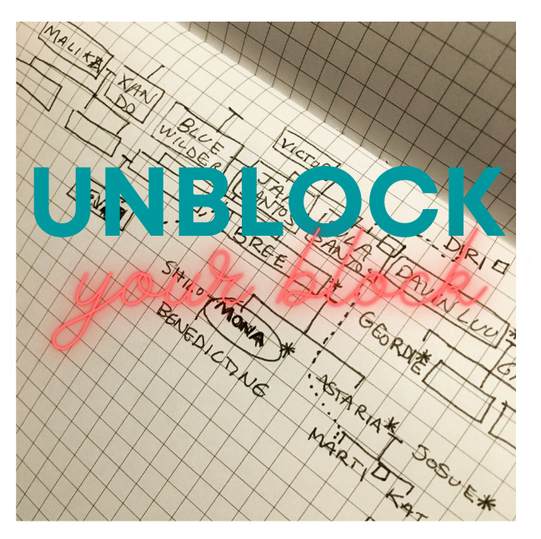
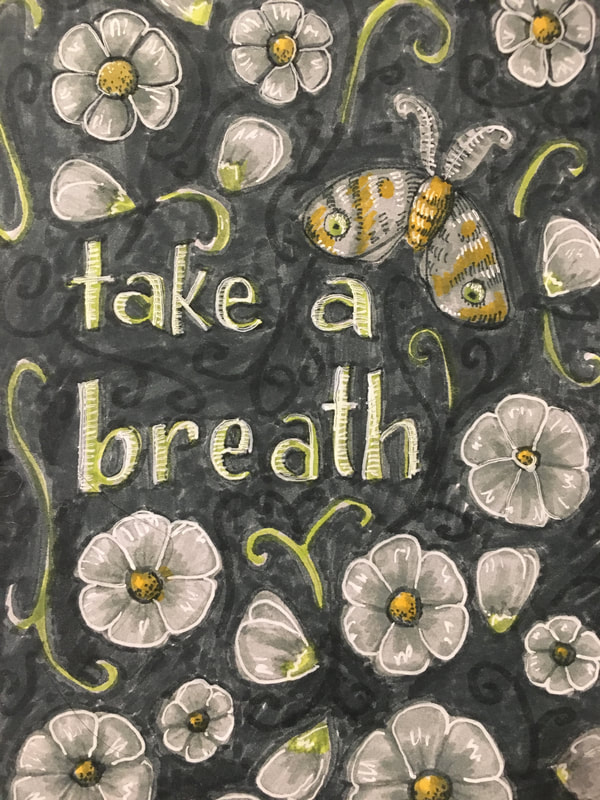
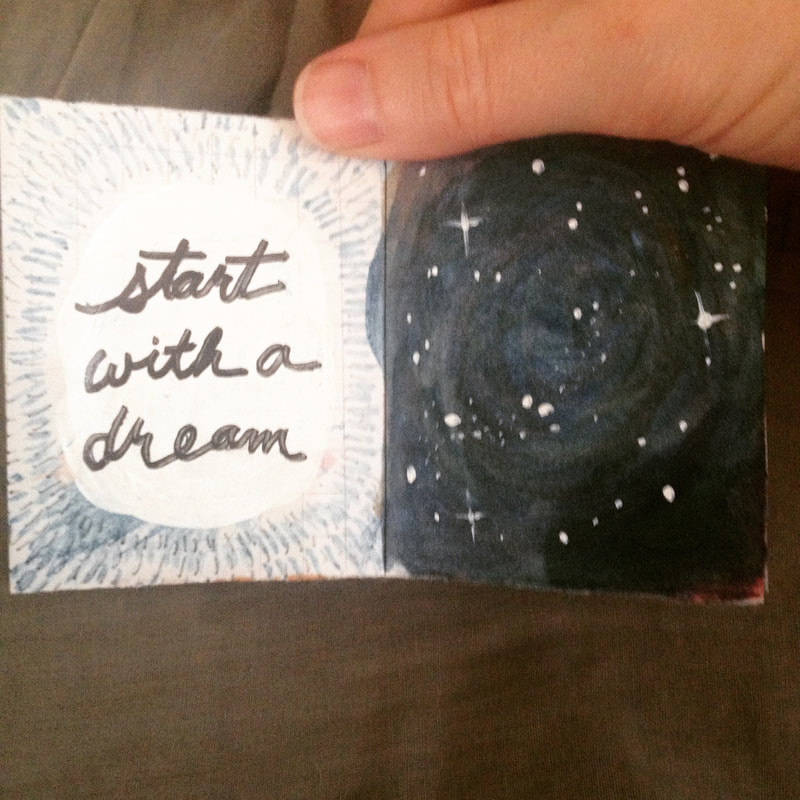
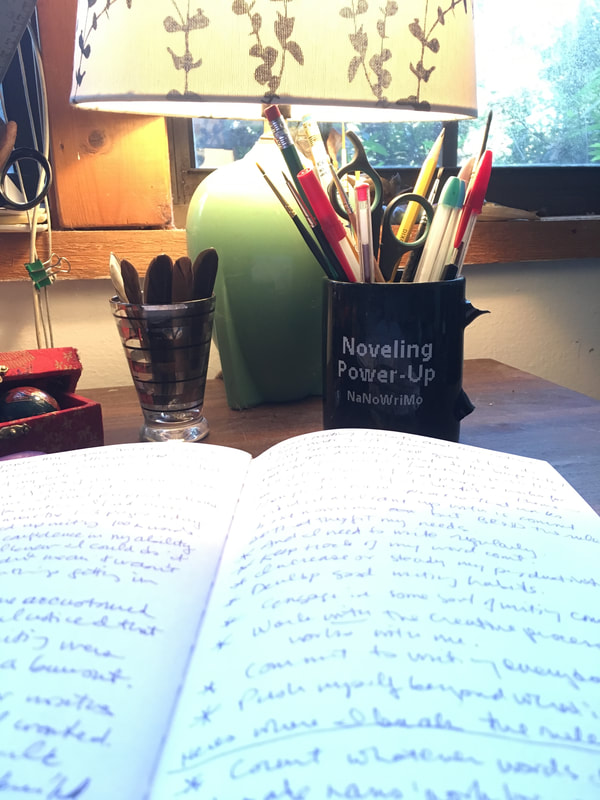
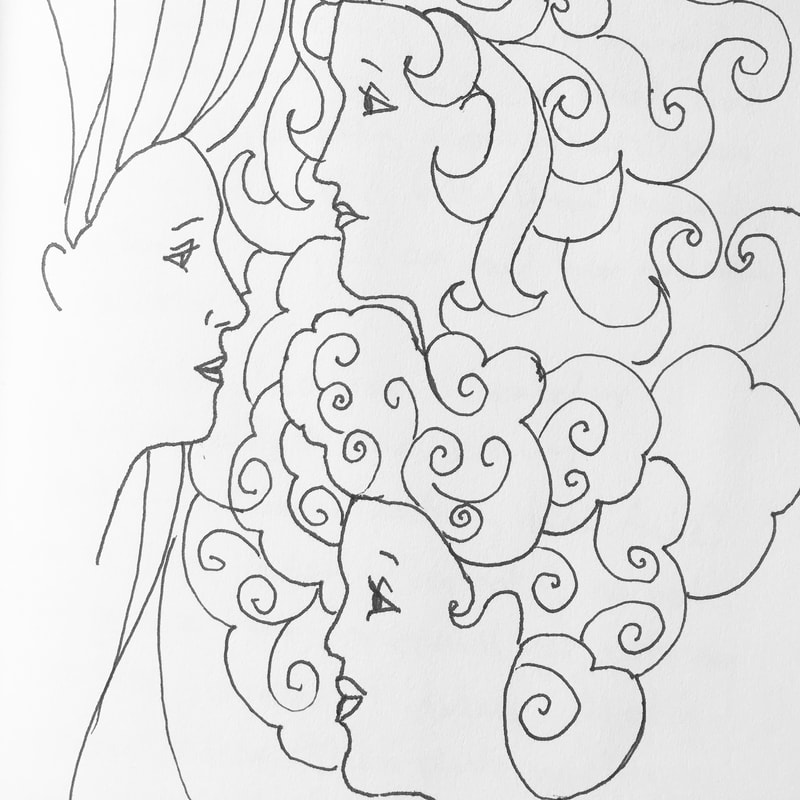
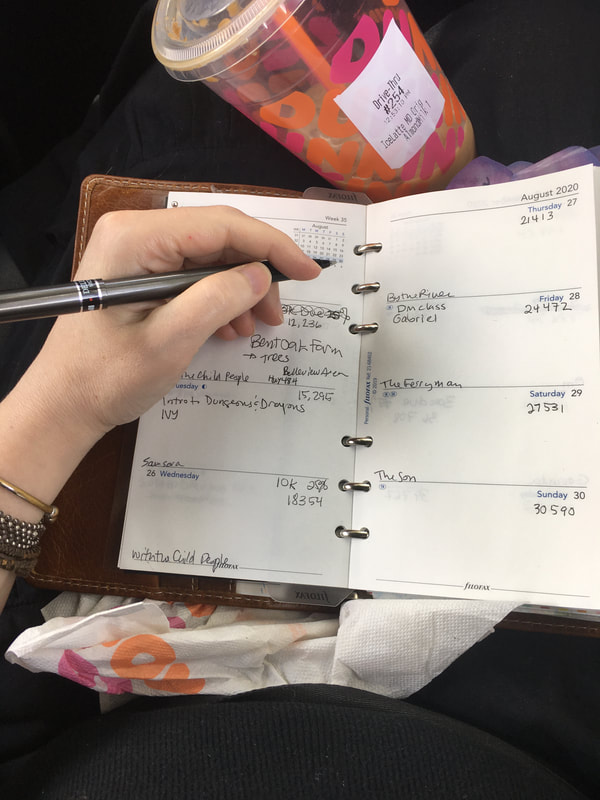
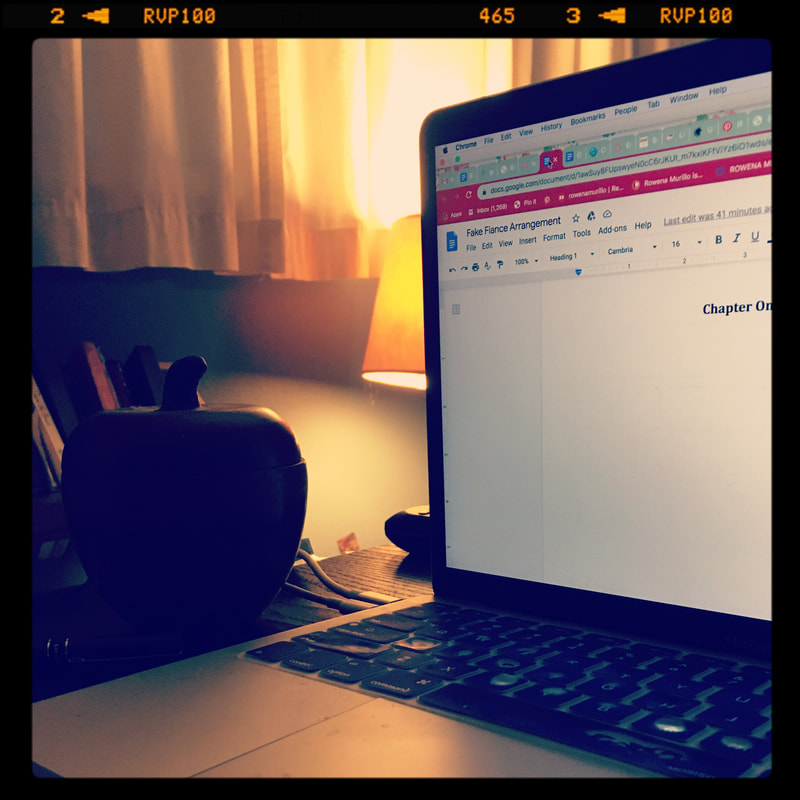
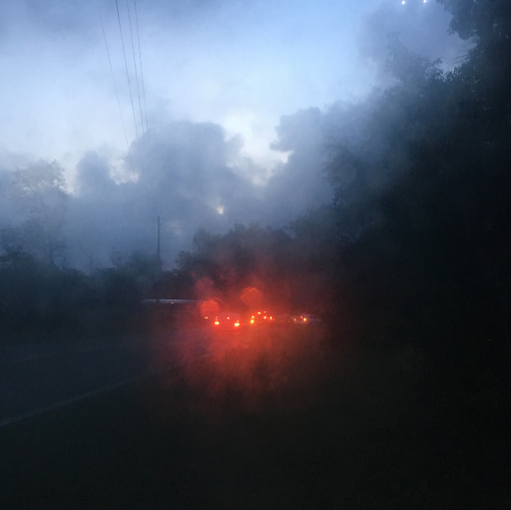
 RSS Feed
RSS Feed
